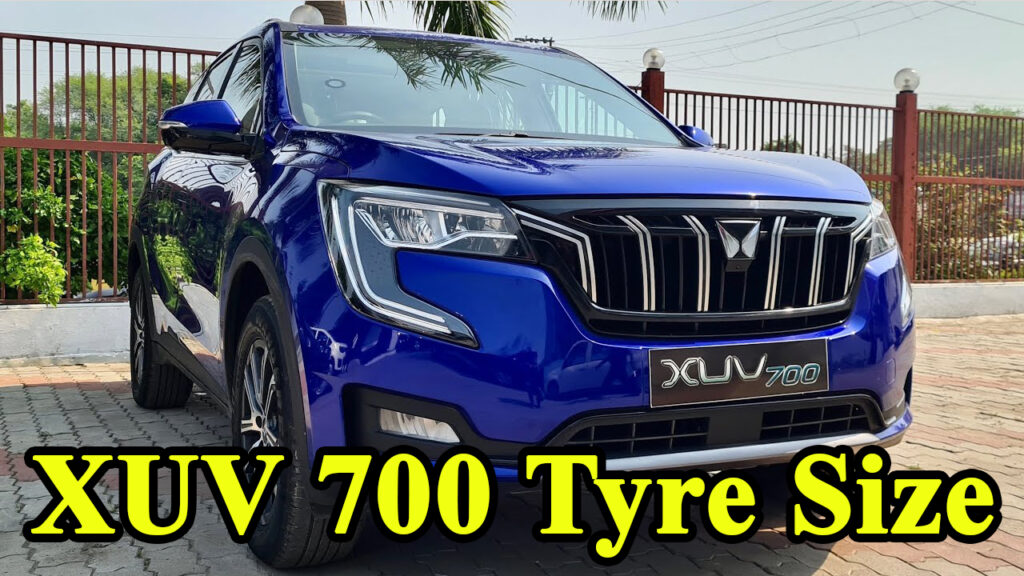Ask any experienced driver, and they’ll tell you: tires aren’t just round, black things that get you from A to B. They are the crucial connection between your car and the road, influencing everything from your daily commute’s comfort to your family’s safety. For Nissan Sentra owners, understanding your vehicle’s tire size isn’t just about replacing old rubber; it’s about optimizing performance, ensuring fuel efficiency, and maintaining the integrity of your beloved compact sedan.
As someone who’s spent years advising folks on their automotive needs, I’ve seen firsthand the difference the right set of tires makes. From the nimble handling of a fresh set on a crisp morning drive through the city to the confident grip in a sudden downpour, your Sentra’s tires are working tirelessly. So, let’s peel back the layers and truly understand the world of Nissan Sentra tire sizes.
Decoding the Sidewall: Your Tire’s Secret Language
Before we dive into specific Sentra models, let’s demystify those cryptic numbers and letters etched on every tire’s sidewall. It’s like a universal code, and once you crack it, you’ll feel like a true tire expert.
Take a common Sentra tire size, say 205/55R16 91V. Here’s what each part means:
- 205 (Tire Width): This number represents the tire’s width in millimeters, from sidewall to sidewall, when measured at its widest point. So, 205mm is the width.
- 55 (Aspect Ratio/Profile): This is the tire’s sidewall height expressed as a percentage of its width. In this case, the sidewall height is 55% of 205mm. A lower number here means a shorter sidewall, often found on sportier tires.
- R (Construction Type): “R” stands for “Radial.” Almost all modern passenger car tires are radial, meaning their internal plies (layers of fabric) radiate outward from the center of the tire.
- 16 (Rim Diameter): This is the diameter of the wheel (or rim) that the tire is designed to fit, measured in inches. So, this tire fits a 16-inch wheel.
- 91 (Load Index): This two or three-digit number indicates the maximum weight capacity a single tire can support when properly inflated. A load index of 91, for example, means the tire can carry 1,356 pounds (or 615 kg). Always ensure your new tires have a load index equal to or greater than your vehicle’s original equipment.
- V (Speed Rating): This letter specifies the maximum speed at which the tire can safely carry its load under specified conditions. “V” corresponds to 149 mph (240 km/h). Other common ratings include H (130 mph), S (112 mph), T (118 mph), and W (168 mph). While you might not drive at these speeds, the speed rating indicates the tire’s overall performance capabilities and heat resistance.
Understanding these values is your first step to making informed tire decisions for your Nissan Sentra.
Understanding Kia Soul Tire Sizes: More Than Just Numbers
Nissan Sentra Tire Sizes: A Generational Breakdown
The Nissan Sentra, a staple in the compact car segment for decades, has seen various evolutions. With each new generation, there have often been changes in tire sizes to match redesigned suspensions, updated styling, and performance goals. Let’s look at some of the more recent and common generations:
Nissan Sentra (B17 Generation: 2013-2019)
This generation offered a comfortable ride and solid fuel economy, and its tire sizes reflected that.
- Personal Insight: I remember a customer, Sarah, who owned a 2015 Sentra SV. She came in complaining about excessive road noise after replacing her tires at a budget shop. Turns out, they had put on a generic, harder compound tire instead of a quality touring tire. We swapped them out for a set of Michelin Defenders (which are fantastic for ride comfort and longevity on Sentras), and she couldn’t believe the difference. It just goes to show that while the size might be correct, the type of tire matters immensely for your driving experience.
Nissan Sentra (B18 Generation: 2020-Present)
The current generation of the Sentra brought a more aggressive, sportier design and improved handling. This translated to slightly larger wheel options and tire sizes for some trims.
- Important Value: Notice how the base models (S, SV) still often use a 16-inch wheel, but the aspect ratio changed from 55 to 60. This means a slightly taller sidewall for a potentially softer ride. The sportier SR trim jumps to an 18-inch wheel with a lower 45 aspect ratio, which visually fills the wheel well better and contributes to a more direct steering feel.
Always check your specific vehicle’s door jamb sticker or owner’s manual for the precise recommended tire size and pressure for your year and trim level. This is the ultimate authority on what your car needs.
Why the Right Tire Size Is Non-Negotiable
You might think, “What’s the big deal if I go a little bigger or smaller?” Trust me, it’s a very big deal. Using the wrong tire size can lead to a cascade of problems:
- Safety Compromise: Incorrect tire sizes can throw off your vehicle’s handling, braking, and stability, especially in emergency maneuvers. Your Sentra’s safety systems (like ABS and stability control) are calibrated for specific tire dimensions.
- Speedometer Inaccuracy: If your tire’s overall diameter is different from the original, your speedometer and odometer will read incorrectly. A smaller tire will make your speedometer read faster than you’re actually going, while a larger tire will make it read slower. This can lead to speeding tickets or misjudging distances.
- Reduced Fuel Economy: Larger or wider tires often increase rolling resistance and weight, leading to higher fuel consumption. That extra trip to the gas station will quickly negate any perceived savings on cheaper, ill-fitting tires.
- Premature Wear and Tear: The wrong tire size can put undue stress on your Sentra’s suspension components, bearings, and even the transmission, leading to accelerated wear and costly repairs down the line. It can also cause uneven tire wear, shortening the lifespan of your tires significantly.
- Clearance Issues: Oversized tires might rub against your fender wells or suspension components, especially when turning or going over bumps. This isn’t just annoying; it can damage both the tire and your vehicle.
- Voided Warranty: Some manufacturers or dealerships might void warranty coverage on related components if they determine that incorrect tire sizes were the cause of a malfunction.
Understanding Your TVS NTorq’s Stock Tyres: The OEM Perspective
Choosing the Right Tires for Your Sentra: Beyond the Size
Once you know the correct size, the next step is selecting the right type of tire. This is where your driving habits, local climate, and budget come into play.
- All-Season Tires (Most Common): These are the jack-of-all-trades, designed to offer decent performance in a variety of conditions, from dry pavement to light snow. They are a solid choice for most Sentra owners in temperate climates.
- Examples: Michelin Defender, Pirelli Cinturato P7 All Season Plus II, Bridgestone Turanza QuietTrack. These tires prioritize comfort, quietness, and long tread life, making them excellent companions for the Sentra’s daily driver nature.
- Winter/Snow Tires: If you live in an area with harsh winters (think blizzards and icy roads like we get occasionally in the Midwest!), dedicated winter tires are a wise investment. Their specialized rubber compounds and aggressive tread patterns provide superior grip in cold temperatures, snow, and ice.
- Examples: Michelin X-Ice Snow, Continental VikingContact 7, Goodyear UltraGrip. They can dramatically improve braking and handling in treacherous conditions.
- Performance Tires: For Sentra owners who prioritize sportier handling and grip in dry conditions, performance tires offer stiffer sidewalls and specialized tread designs. Be aware that these often come with a trade-off in ride comfort and tread life, and are generally not recommended for cold weather.
Tire Pressure: The Unsung Hero of Tire Longevity and Safety
Knowing your tire size is critical, but so is maintaining proper tire pressure. This is arguably the simplest yet most overlooked aspect of tire care.
- Where to Find It: Your Nissan Sentra’s recommended tire pressure (PSI – pounds per square inch) is always listed on a sticker located on the driver’s side door jamb. It’s also in your owner’s manual. For most Sentra models, you’ll find recommended PSI values generally in the 32-36 PSI range.
- Why It Matters:
- Safety: Properly inflated tires offer optimal grip and braking performance. Underinflated tires can lead to blowouts, reduced handling, and increased stopping distances. Overinflation can lead to less grip and a harsher ride.
- Fuel Economy: Underinflated tires create more rolling resistance, forcing your engine to work harder and consume more fuel. Maintaining correct pressure can improve fuel efficiency by 3-5%!
- Tire Life: Correct pressure ensures even wear across the tire tread. Improper inflation leads to uneven wear, significantly shortening the lifespan of your tires and costing you money in premature replacements.
- Checking Your PSI: Always check your tire pressure when the tires are “cold” – meaning they haven’t been driven for at least three hours or more than a mile or two. Driving heats up tires, increasing the internal air pressure and giving you an inaccurate reading. A good quality digital tire pressure gauge is a small investment that pays huge dividends.
The Cost of Rubber: What to Expect for Your Sentra
The price of new tires for your Nissan Sentra can vary widely based on size, brand, type (all-season vs. performance), and where you buy them.
- General Range: You can expect to pay anywhere from $65 to $250+ per tire for a Nissan Sentra.
- Budget-Friendly Options: Tires in the $65-$100 range per tire might include lesser-known brands or entry-level touring tires. They’ll get the job done but might compromise on noise, comfort, or tread life.
- Mid-Range (Most Common): Tires in the $100-$175 range per tire usually offer a good balance of performance, durability, and comfort from reputable brands. This is where most Sentra owners find their sweet spot.
- Premium Options: High-performance or top-tier touring tires from brands like Michelin, Pirelli, or Continental can run $175-$250+ per tire. These often come with advanced technologies for superior grip, quietness, and longer warranties.
Remember to factor in installation costs, balancing, and old tire disposal fees, which can add another $15-$30 per tire.
A Personal Touch: My Own Sentra Tire Story
I recall a few years ago, my sister-in-law, who lives in Dallas, bought a used 2017 Nissan Sentra SV. She called me, concerned because the ride felt a bit “floaty” on the highway, and she heard a persistent humming noise. She’d just had the oil changed and asked the shop to “check the tires,” but they just told her they were “fine.”
When she visited, I took a look. While the tires had decent tread, they were an off-brand, economy tire that wasn’t designed for the Sentra’s handling characteristics. More critically, the tire pressure was inconsistent across all four tires, some as low as 28 PSI. We headed to our local tire shop, Texan Tires (a fantastic, honest place near where I used to work), and I recommended we swap them out for a set of Yokohama Avid Ascends. They’re a great all-season tire, known for good wet traction and a quiet ride.
After the installation and proper balancing, she drove away, and within minutes, called me back, ecstatic. “It’s like a different car!” she exclaimed. The humming was gone, the ride was smoother, and the Sentra felt planted on the road. It wasn’t about a huge upgrade; it was about getting the right tire, properly installed, and correctly inflated for her specific vehicle. It reinforced my belief that tires are a foundational element of any vehicle’s performance and driver satisfaction.
Maintaining Your Sentra’s Tires: Simple Steps, Big Impact
You’ve invested in the right tires; now protect that investment!
- Regular Pressure Checks: As discussed, check your tire pressure at least once a month, and before any long road trips.
- Tire Rotations: Rotate your tires every 5,000-7,500 miles, or as recommended by Nissan. This helps ensure even wear, extending the life of your entire set.
- Wheel Alignment: If you notice uneven tire wear, your Sentra pulling to one side, or your steering wheel isn’t straight, get a wheel alignment. Potholes and curbs can throw off your alignment, leading to rapid, uneven tire wear.
- Visual Inspections: Regularly look at your tires for any signs of damage – bulges, cracks, embedded objects (nails, screws). Catching these early can prevent a flat or a blowout.
- Tread Depth: Use the “penny test.” Insert a penny into a tire groove with Lincoln’s head upside down and facing you. If you can see all of Lincoln’s head, your tread is shallow, and it’s time for new tires. Most tires have built-in tread wear indicators that become visible when the tread depth is dangerously low.
FAQ: Your Top Nissan Sentra Tire Questions Answered
Q1: Can I put different sized tires on my Nissan Sentra than what came from the factory? A1: While it’s generally best to stick to the factory recommended sizes, minor variations are sometimes possible for aesthetic or specific performance reasons (e.g., plus-sizing for larger wheels). However, this should always be done by a reputable tire professional who understands offset, clearance, and how it will affect your speedometer and vehicle dynamics. Incorrect modifications can be dangerous and costly.
Q2: How often should I replace my Nissan Sentra’s tires? A2: There’s no single answer as it depends on driving habits, road conditions, and tire quality. As a rule of thumb, most tires last between 40,000 to 80,000 miles. However, tires should be inspected for age (even with good tread, rubber degrades over time – generally, tires older than 6 years should be professionally inspected) and physical damage regardless of mileage.
Q3: What are the best tire brands for a Nissan Sentra? A3: For all-season performance, comfort, and longevity, popular and reliable brands include Michelin (e.g., Defender), Bridgestone (e.g., Turanza QuietTrack), Pirelli (e.g., Cinturato P7 All Season Plus II), Continental, and Yokohama. For winter driving, Michelin X-Ice, Continental VikingContact, and Goodyear UltraGrip are excellent choices.
Q4: My TPMS (Tire Pressure Monitoring System) light is on, but my tires look fine. What should I do? A4: First, manually check all your tire pressures with a reliable gauge and inflate them to the recommended PSI. If the light remains on after driving a few miles, it could indicate a slow leak, a faulty TPMS sensor (which happens, especially in older models), or a system malfunction. It’s best to have a qualified mechanic or tire shop diagnose the issue.
Q5: Can I mix tire brands or types on my Nissan Sentra? A5: It is strongly recommended to avoid mixing tire brands or types (e.g., all-season with performance) on the same vehicle. This can lead to unpredictable handling, especially in adverse conditions, as different tires will react differently to the road. If you must replace only two tires, ensure they are the same size, brand, and model as the remaining two, and ideally, install the new tires on the rear axle for optimal stability.
Conclusion: Your Sentra Deserves the Best Footwear
Tires are often an afterthought until they go flat or wear out. But for your Nissan Sentra, they are critical components that impact your safety, driving enjoyment, and even your wallet. By understanding the basic tire size codes, knowing the specific needs of your Sentra’s generation, and committing to simple maintenance routines like regular pressure checks and rotations, you empower yourself to make informed decisions.
Remember my sister-in-law’s story: sometimes, the seemingly small details make the biggest difference. Don’t underestimate the power of the right set of tires. They truly are the unsung heroes of your Nissan Sentra, carrying you reliably and comfortably through every mile of your journey. Drive smart, drive safe, and give your Sentra the quality footwear it deserves!




